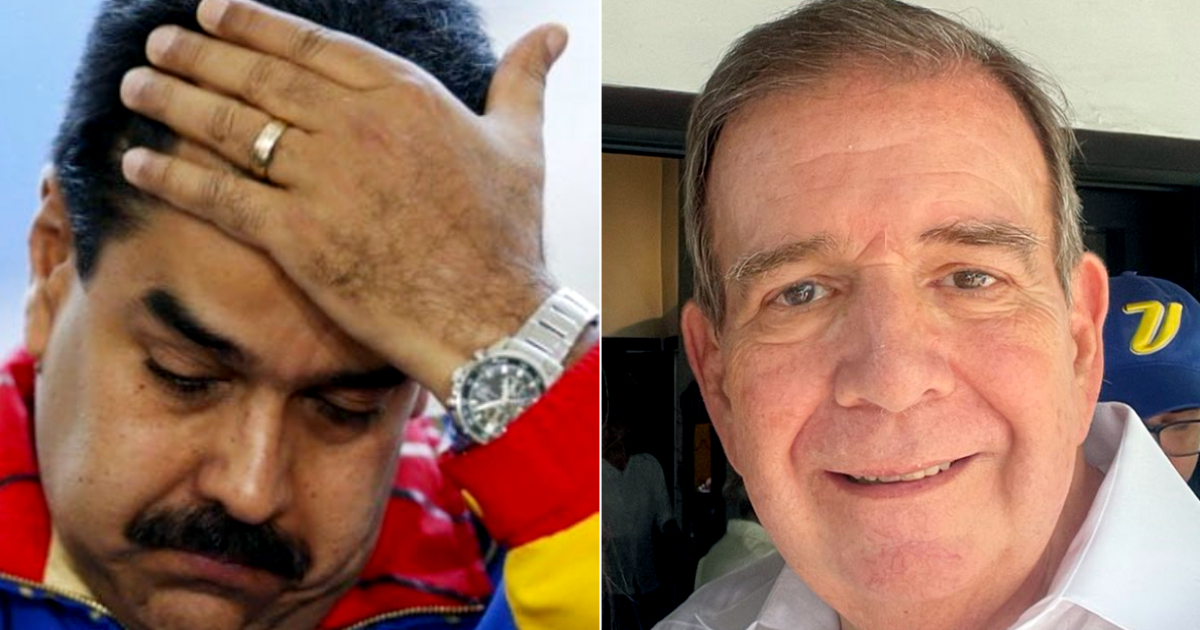The United States has reportedly offered Venezuelan leader Nicolás Maduro a deal with extensive personal guarantees, provided he accepts his defeat and initiates a peaceful transition to democracy in Venezuela. The Biden administration is willing to offer the Venezuelan dictator "anything he wants" to halt the repression of opposition and protestors, to transparently present the election results, and to acknowledge the Venezuelan people's desire for change.
According to anonymous sources cited by the prestigious British outlet The Economist, the U.S. would give Maduro "anything he wants" if he steps down. However, they admit that it is "unlikely" that the dictator will resign "unless pressured."
Potential Outcomes and Challenges
Other sources consulted by the newspaper suggested that the parties "might have to settle for holding new elections." Nonetheless, "Machado and other opposition leaders would rightly oppose this," they admitted.
Three factors are influencing the possibility that Maduro might accept his defeat in the elections held on July 28. The first is "internal unrest" within his government. Secondly, the stances of regional governments and the U.S. discussions with Brazil, Mexico, and Colombia to respect the election results presented and validated by the opposition, with over 80% of the votes transparently counted, contrast starkly with Maduro's regime's baseless accusations of fraud, hacking, and other crimes.
Lastly, according to U.S. sources consulted by The Economist, the loyalty of the military to Maduro's regime might be eroding, pushing Maduro to the negotiation table. This hypothesis is considered the weakest, given the total control of the armed forces by the Chavismo, advised by Havana in counterintelligence and corruption strategies among high-ranking military officials.
The U.S. offer to give Maduro "anything he wants" reportedly includes a promise not to demand his extradition. The American strategy to unlock Venezuela's governance involves high-level discussions with the leftist governments of Luiz Inácio Lula da Silva (Brazil), Andrés Manuel López Obrador (Mexico), Gustavo Petro (Colombia), and Gabriel Boric (Chile).
While the first three have maintained ambiguous positions on Maduro's alleged electoral fraud, with a mix of critical statements and calls for dialogue and negotiation, the Chilean socialist government of Boric has been more forceful in condemning Maduro's regime for electoral fraud and the repression following popular protests.
Key Questions About U.S. Proposal to Nicolás Maduro
Here are some important questions and answers regarding the U.S. offer to Nicolás Maduro and its implications for Venezuela's political situation.
What guarantees is the U.S. offering Nicolás Maduro?
The U.S. is reportedly offering extensive personal guarantees to Nicolás Maduro, including a promise not to demand his extradition, in exchange for his acceptance of electoral defeat and initiation of a democratic transition.
Why is it unlikely that Maduro will resign without pressure?
According to sources, Maduro is unlikely to resign unless pressured because of his entrenched control over the military and his regime’s strong hold on power, advised by Havana in counterintelligence and corruption strategies.
What are the potential outcomes if Maduro does not accept the U.S. offer?
If Maduro does not accept the U.S. offer, the parties might have to settle for holding new elections, although this is likely to be opposed by opposition leaders like Machado, who seek a more definitive resolution.
